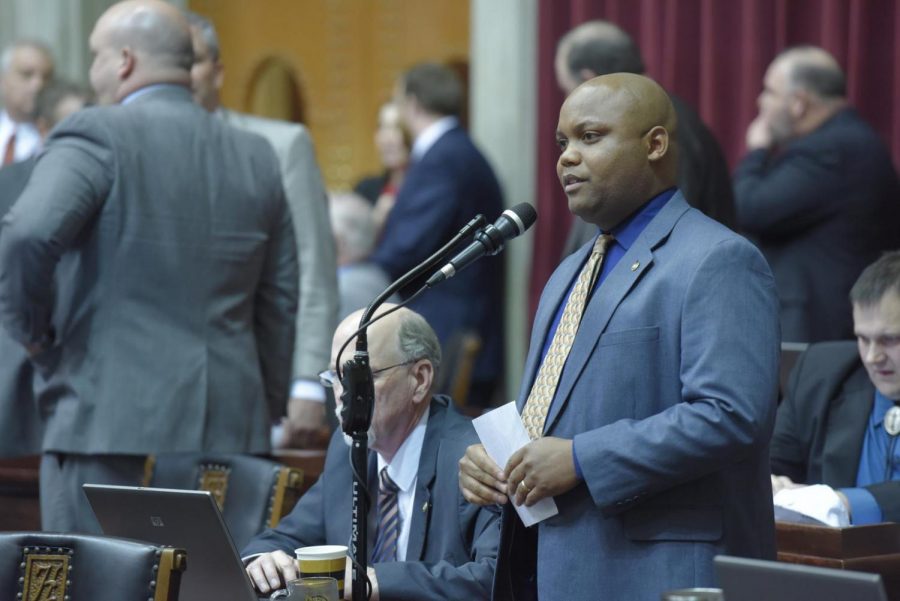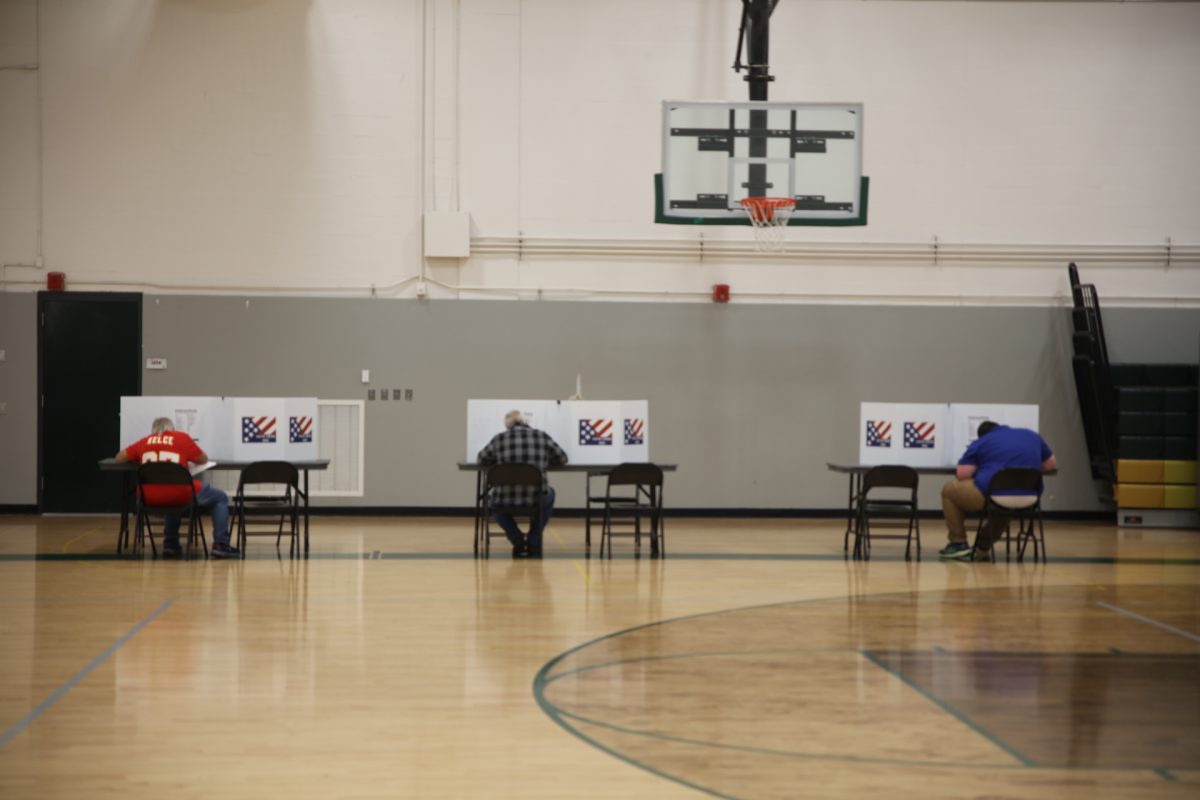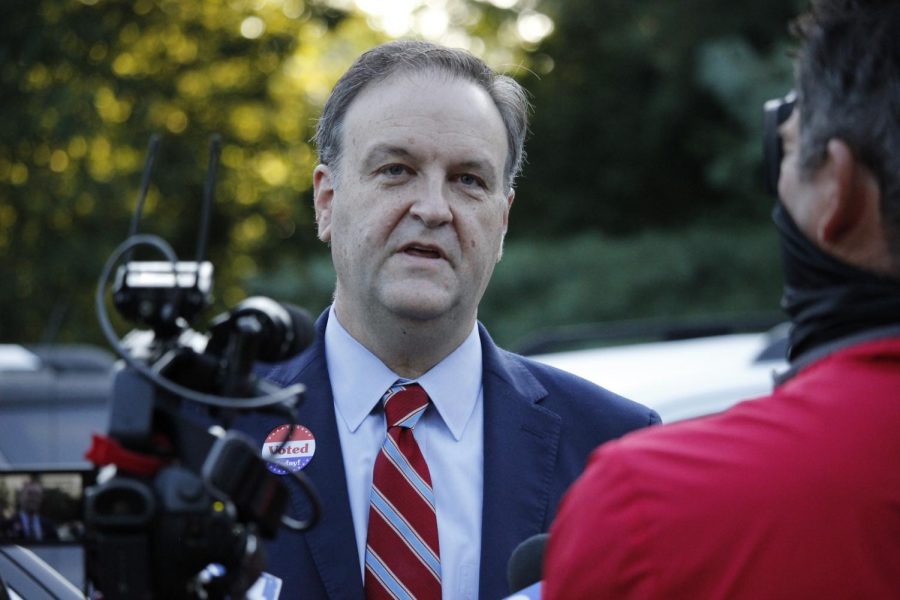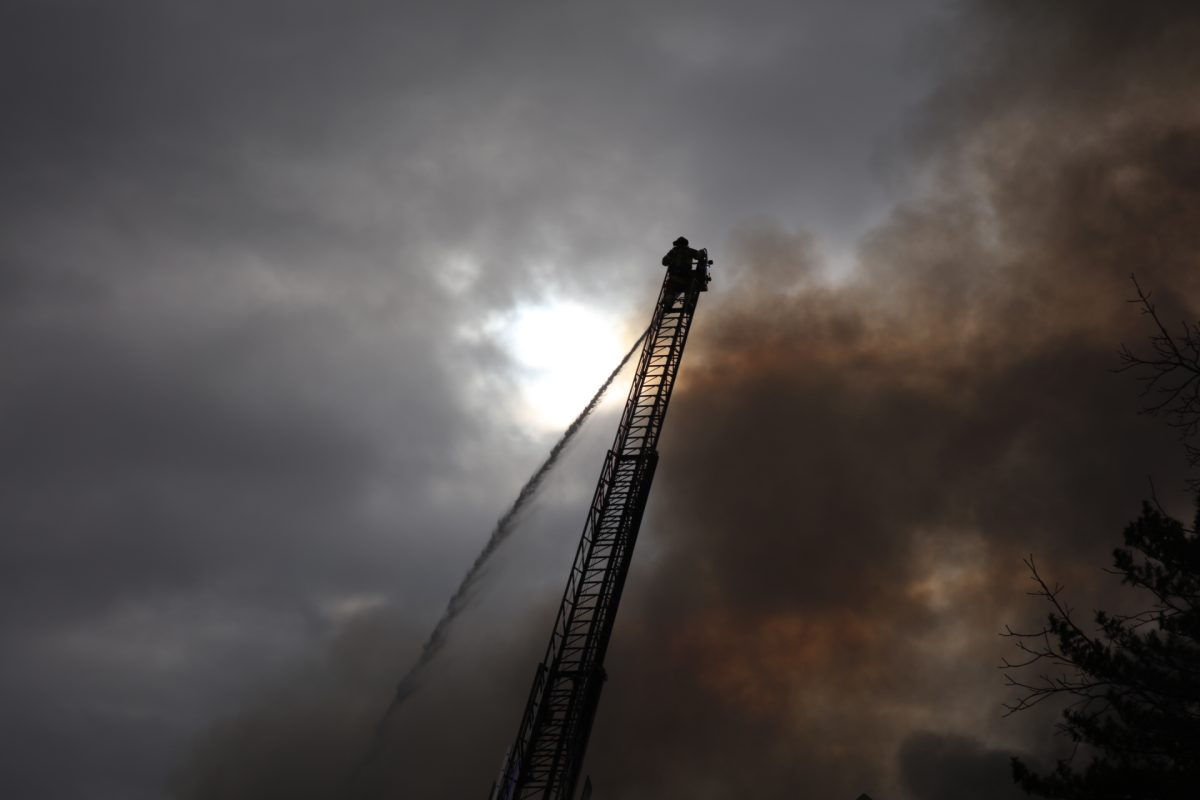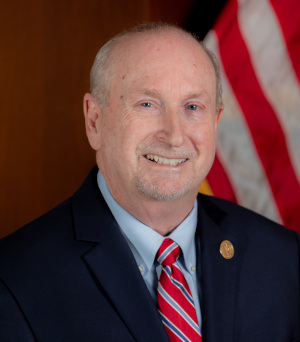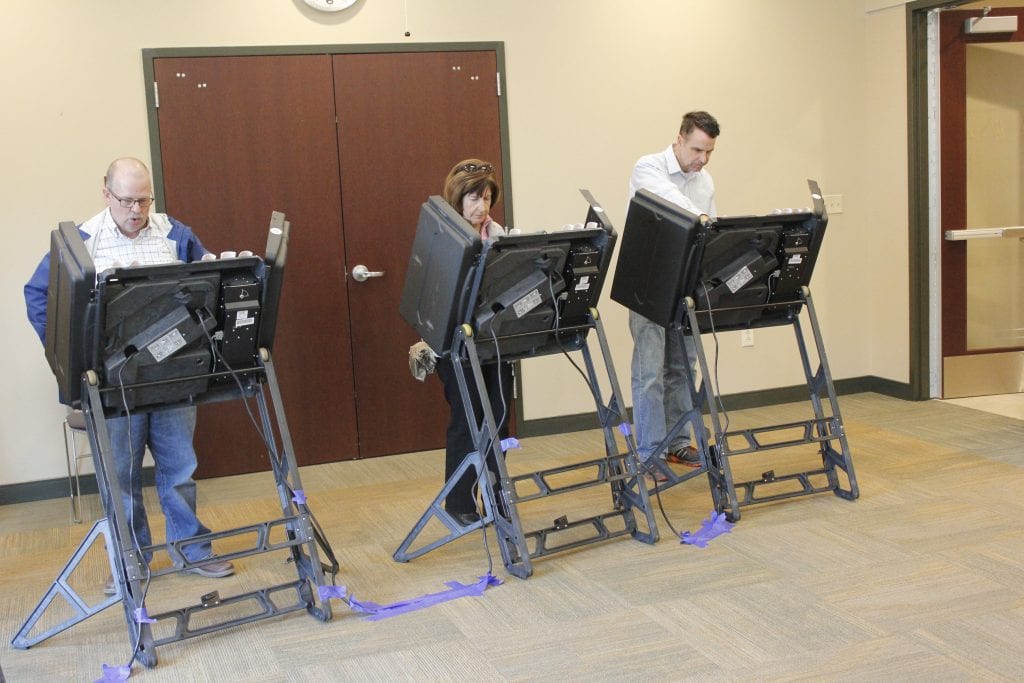As state lawmakers mull the idea of restricting police use of chokeholds or no-knock warrants, they are facing pushback from law enforcement organizations who contend decisions should be made at the local level.
The House Special Committee on Criminal Justice met for three hours on Monday to explore the possibility of passing legislation restricting these practices next year.
They heard testimony from law enforcement officials and residents about their experiences, and in the end proponents of police reform said passing meaningful legislation would be an uphill fight.
“This isn’t easy, right?” said Rep. Shamed Dogan, a Republican from Ballwin in St. Louis County who chairs the special committee. “If it was easy, it would have been done a long time ago. But we got to do it.”
Dogan pointed to testimony from a woman whose home was raided using a no-knock warrant over a municipal violation. Her family doesn’t believe in calling the police anymore, and Dogan said this mistrust keeps law enforcement from being able to do their jobs.
“That’s a sentiment that we hear in far too many of our communities across the state,” Dogan said.
Rep. Wiley Price, a Democrat from St. Louis County, said he walked into the hearing expecting to talk about “less controversial” police reforms and was surprised to hear the amount of pushback from the law enforcement officials.
Both leaders of the Missouri Sheriffs’ Association and the Missouri State Troopers’ Association acknowledged that there were problems, but said state legislation is not the way to fix them.
Kevin Merritt, executive director of the sheriffs’ association, said currently each sheriff’s office can make the decision on whether or not to train and allow their officers to use chokeholds.
“And we firmly believe that is where that decision needs to remain — is at the administrative level with the local organizations,” Merritt said.
At the end of the hearing, Rep. Tony Lovasco, a Republican representing St. Charles and Lincoln counties, said he was “beyond frustrated” by the discussion.
“We are constantly negotiating with people that we’re supposed to be overseeing,” Lovasco said. “That’s a reality that should just be completely turned upside down. Our job is to make sure that the government and its agents run well. And they don’t get to make demands.”
Chokeholds
On May 25, Minneapolis police officers killed George Floyd, a 46-year-old Black man, by kneeling on his neck after he was already handcuffed and lying face down. The viral video of the arrest and killing reignited the national movement for police reform, one that began in Ferguson in 2014.
Both Merritt and Kemp Shoun, executive director of the Missouri State Troopers’ Association, said this was not a “trained technique.”
However, Merritt said that there should be a distinction between rendering someone unconscious by cutting off their air flow — which he called a respiratory restraint — and by cutting off the blood flow to the brain or a lateral vascular neck restraint. He said both can be used, but the respiratory restraint should only be used in life-threatening situations.
However, the way it was used on Floyd was not a “proper way” to cut off air flow, Shoun said. Merritt trains officers to use the vascular technique, he said, and argued that it’s completely safe.
Police departments in St. Louis County and city banned all chokeholds and neck restraints more than a decade ago. The Kansas City Police Department does not authorize chokeholds but still uses the lateral vascular neck restraint, though some groups are advocating to change that.
The Columbia Police Department currently allows chokeholds when officers are in imminent danger, but the city council is currently considering a total ban on all neck restraints.
One retired homicide detective from St. Louis told The Independent that she disagrees with Merritt’s statement.
“Targeting any area of the neck or restricting air flow is considered deadly force, no matter what term they use,” said Heather Taylor, former president of the Ethical Society of Police — an association largely made up of Black police officers in the St. Louis region. “Their stance is a bad one but typical.”
Merritt said that using certain chokeholds prevents law enforcement from having to use their guns. He referenced his own experience arresting an out-of-control high school student who had been “sniffing paint thinner.”
“The use of that technique in a less-than-deadly-force situation saved the life of that 16-year-old that day and potentially saved my life,” Merritt said.
In the hearing, Price and Merritt went back and forth about whether or not a vascular restraint could be deadly. In the end, Merritt agreed that it could be deadly but still didn’t think state legislation is the right step because “state law cannot encompass every use of force.”
Merritt challenged the legislators if they would ban every act that could be considered deadly, including beating someone to death with a flashlight or poking them in the eye too far.
And officers having to worry about “optics” put them at risk, he said.
“I don’t think that optics should drive an officer’s use-of-force decision,” Merritt said. “You probably heard the phrase, ‘Everybody likes sausage, but making sausage is an ugly process.’ So the optics of making sausage can really be unpleasant to a lot of people, and can turn their stomach.”
Several legislators were alarmed when Merritt said he would use the same vascular restraint on a 12-year-old as someone older, if they appeared to be able to overpower him.
“Apparently, using restraints to cut off the blood flow to the brains of children is on the table,” Lovasco said. “We got a lot of work to do.”
Shoun did acknowledge that not every law enforcement agency is practicing these restraining techniques the same. But he also didn’t think the state should regulate them.
“We’ve seen some inequities out there,” Shoun said, “I think what we need to do is recognize some good agencies that are out there doing and say, ‘Hey, let’s decide what makes them work.’”
He believes the state’s licensing program, the Peace Officer Standards and Training Program (POST) out of the public safety department, should be the one to get every agency on the same page.
“Maybe they can set some standards,” he said.
The ACLU of Missouri issued a statement Monday that reform in the state has commonly been blocked using the “every tool in the toolbox” argument.
“But let’s be very clear,” said Sara Baker, policy director of ACLU of Missouri. “When the toolbox is deadly, it must come with safeguards and accountability before it is ever opened.”
No-knock warrants highlighted by South County raid
Breonna Taylor, a 26-year-old Black woman and emergency room technician, was shot to death on March 13, when plainclothes officers raided her apartment in Louisville. Her death has sparked legislation across the country banning no-knock warrants, or warrants that allow officers to enter a property without requiring that they announce their presence.
Angela Zorich of Oakville in south St. Louis County called in to share her experience of police raiding her home in April 2014. She testified that the no-knock warrant was issued because her gas had been turned off.
She and her children were held at gunpoint, and the family’s 4-year-old pit bull, Kiya, was shot and killed. St. Louis County offered to settle the case for $750,000 just before closing arguments of the trial.
Zorich said that no-knock SWAT raids are “extremely dangerous” to both the community and officers.
“Many people have been killed, including police officers and innocent children,” Zorich said. “There are very few circumstances that warrant the violent and sometimes deadly outcomes of this practice.”
Body cameras were suggested as a potential tool for prevention, and Shoun said every agency needs to be looking in that direction.
“That’s going to take some funding, especially as you get away from the cities who are getting very accustomed to wearing body cameras,” Shoun said. “In the rural agencies, not as much.”
Both Merritt and Shoun believed that no-knock raids are so “rare” that they don’t need to be regulated.
What’s next
The goal of the hearing was to put some facts on the table, Dogan said.
He believes members of the committee will continue talking to constituents and groups this year and will potentially introduce bills in the legislative session coming up.
Rep. Steve Roberts, a Democrat from St. Louis city who was elected last week to the Missouri Senate, brought up the idea of establishing a statewide police misconduct registry.
He said he had conversations with some law enforcement officials about the idea of “muni-hopping,” where an officer gets in trouble and then just finds a job in the neighboring police department.
“I don’t think good law enforcement has any issues with tracking bad law enforcement,” Shoun said. “I think that should be pretty much open.”
Price said the statements about choking people unconscious being completely safe were an “eye opener” for him.
“When we are having conversations on that level, it’s tough to go to the drafting table,” Price said.
Baker said banning chokeholds, prohibiting the abuse of authority and halting no-knock warrants are “basic” reforms that will restore community trust.
“The Legislature must act,” Baker said. “When police can come into your house without warning and shoot your dog for something like an unpaid gas bill, it’s blatant evidence that the system is broken.”
Lovasco explained that this is a special committee that’s not guaranteed to continue with the change in House speakers from Elijah Haahr to Rob Vescovo. He urged Vescovo to continue the committee.
“We have more work to do,” Lovasco said. “Mr. Speaker, please bring us back.”
This coverage of the Missouri Legislature is from the Missouri Independent.



